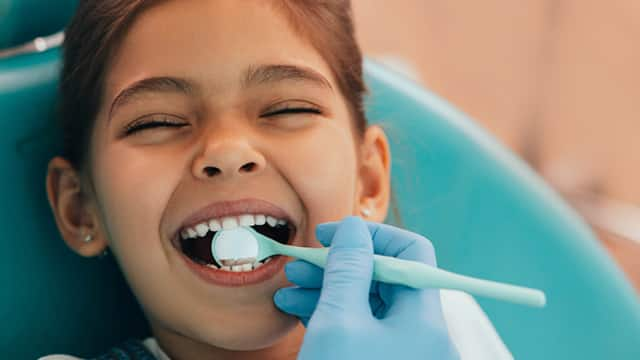An underbite, called a Class III malocclusion or prognathism, is when the lower teeth and jaw protrude in front of the upper teeth. The upper teeth slightly cover the bottom teeth in a typical smile, but it's the opposite case with an underbite. Underbites in toddlers are relatively common, so it's not something to be alarmed about. It's something you can bring up with your child's medical or dental professional at your next routine checkup.
What Causes an Underbite?
Heredity plays a vital role in forming an underbite. Did you or one of your parents have an underbite? If so, the chances are greater that your child might develop one as well. Apart from genetics, other common causes of underbites in children include thumb sucking, constant thrusting of the tongue against the teeth, extended use of a pacifier or bottle, and an injury to the jaw.
Besides the physical appearance of an underbite, some symptoms could signal your child is beginning to form this type of malocclusion. You may notice your child or toddler has an underbite if they have difficulty chewing, have speech issues, experience sleep apnea or snoring, or have tooth decay.
How Can You Fix an Underbite?
If your child has an underbite, consult your dental professional to discuss options that will depend on the severity of their underbite and their age. Treatment options include:
- Braces: The most common way to correct an underbite is through braces. Your child may have some questions about getting braces or feel self-conscious about how they will look with metal ones. They can choose clear braces less noticeable than their all-metal counterparts.
- Appliances: Special appliances can be custom-made for your child's mouth by their orthodontist. They include expanders, retainers, and headgear.
- Surgery: Occasionally, an underbite can be so severe that a child may need surgery to fix it. You should consider surgery as a last resort and after careful consideration between you and your child's dental professional.
The good news is that, as noted by Boston Children's Hospital, only about 10 to 15 percent of school-aged children who have some form of malocclusion require treatment.
It can come as a shock when you first notice your baby's underbite. We know that keeping your child's mouth clean and healthy is your top priority, so it's understandable to be concerned. But after a consultation with your child's dental professional and becoming more aware of your child's daily habits that may contribute to tooth misalignment, you'll be able to make a treatment plan, if one is needed at all!
Oral Care Center articles are reviewed by an oral health medical professional. This information is for educational purposes only. This content is not intended to be a substitute for professional medical advice, diagnosis or treatment. Always seek the advice of your dentist, physician or other qualified healthcare provider.
ORAL HEALTH QUIZ
What's behind your smile?
Take our Oral Health assessment to get the most from your oral care routine
ORAL HEALTH QUIZ
What's behind your smile?
Take our Oral Health assessment to get the most from your oral care routine















